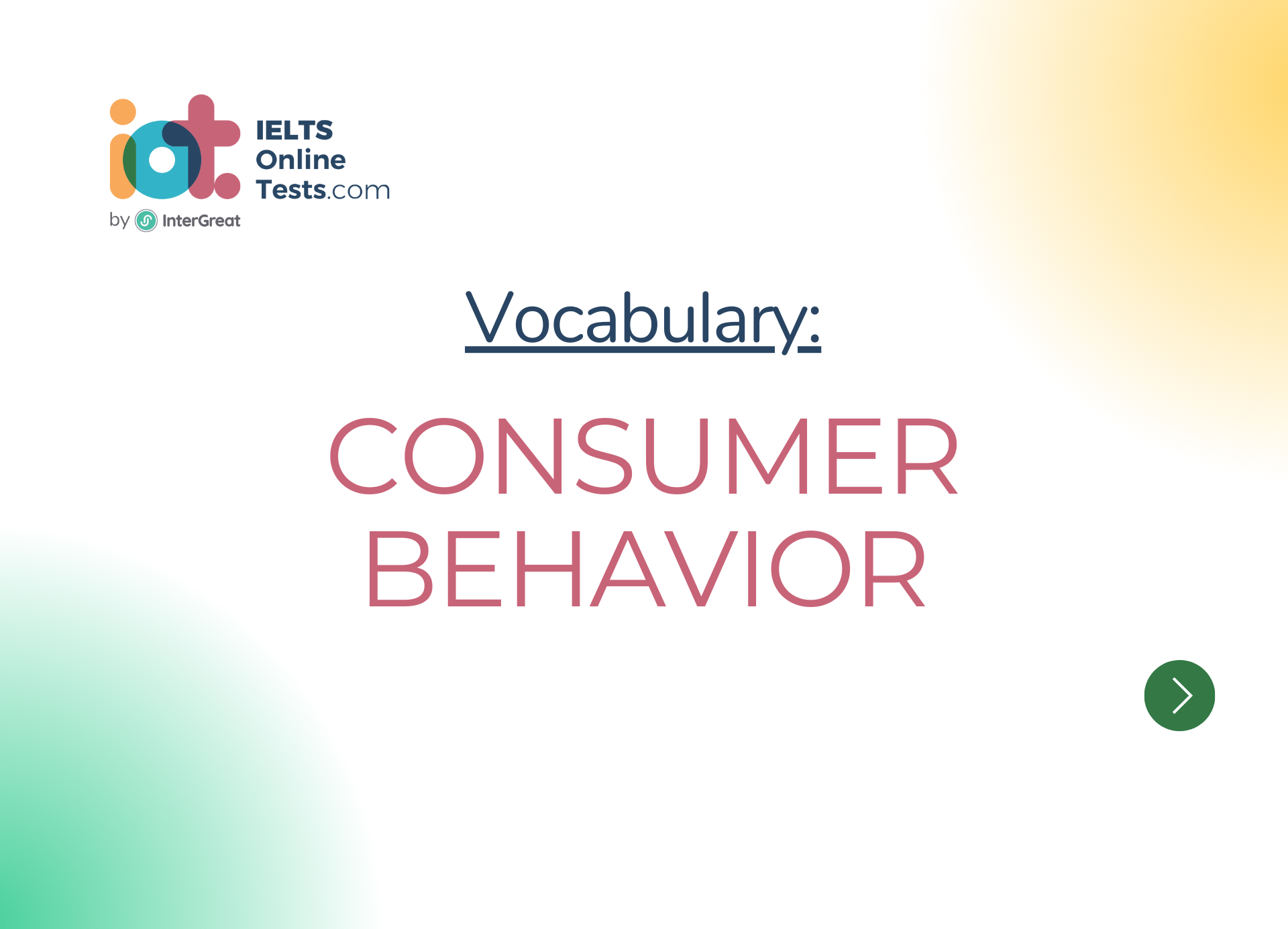
Consumer behavior
Here's a lesson on vocabulary related to "Consumer Behavior" for the IELTS band score 3.0-4.5:
I. General Consumer Behavior Terms:
Consumer behavior: The study of individuals and groups and how they make decisions regarding the selection, purchase, and use of products and services.
Motivation: The internal drive or desire that leads individuals to take specific actions or make certain choices.
Perception: The process by which individuals interpret and make sense of sensory information.
Attitude: An individual's overall evaluation or opinion towards a particular product, brand, or company.
Purchase intention: The likelihood or willingness of a consumer to buy a product.
II. Factors Influencing Consumer Behavior:
Cultural factors: Beliefs, values, customs, and traditions that shape consumer behavior within a specific culture.
Social factors: The influence of family, friends, reference groups, and social networks on consumer decision-making.
Personal factors: Individual characteristics such as age, gender, occupation, lifestyle, and personality that affect consumer behavior.
Psychological factors: Mental and emotional processes that impact consumer decision-making, including perception, learning, and motivation.
Economic factors: Financial considerations such as income, price, and affordability that influence purchasing decisions.
III. Consumer Decision-Making Process:
Need recognition: The stage when a consumer becomes aware of a problem or a desire for a product.
Information search: The process of gathering and evaluating information about available products or services.
Evaluation of alternatives: Comparing and assessing different options before making a purchase decision.
Purchase decision: The selection of a specific product or brand to buy.
Post-purchase evaluation: The consumer's assessment of the satisfaction and value derived from the purchased product.
IV. Buying Behavior:
Impulsive buying: Making unplanned purchases on a whim or without much thought.
Brand loyalty: The tendency of consumers to repeatedly buy products from a particular brand.
Price sensitivity: The degree to which price influences a consumer's purchasing decision.
Product features: Specific characteristics or attributes of a product that are important to consumers.
Word-of-mouth: Information or recommendations about a product passed from person to person.
V. Consumer Research and Analysis:
Market research: The collection and analysis of data related to consumer preferences, market trends, and competition.
Surveys and questionnaires: Tools used to gather information from consumers through structured questions.
Focus groups: Small groups of individuals who provide insights and opinions on specific products or topics.
Data analysis: The process of examining and interpreting data to derive meaningful insights.
Consumer segmentation: Dividing a market into distinct groups based on shared characteristics or behaviors.
VI. Influences on Consumer Behavior:
Reference groups: Groups or social circles that individuals identify with and seek to conform to their behaviors and opinions.
Social media influence: The impact of social media platforms and online communities on consumer decision-making.
Opinion leaders: Individuals who have expert knowledge or influence over others' purchasing decisions.
Culture shock: The disorientation and confusion experienced by individuals when encountering unfamiliar cultural practices or values.
Word-of-mouth marketing: Recommendations or referrals from friends, family, or acquaintances that influence consumer choices.
Remember to practice using these vocabulary words in sentences and conversations to improve your understanding and fluency in English.




